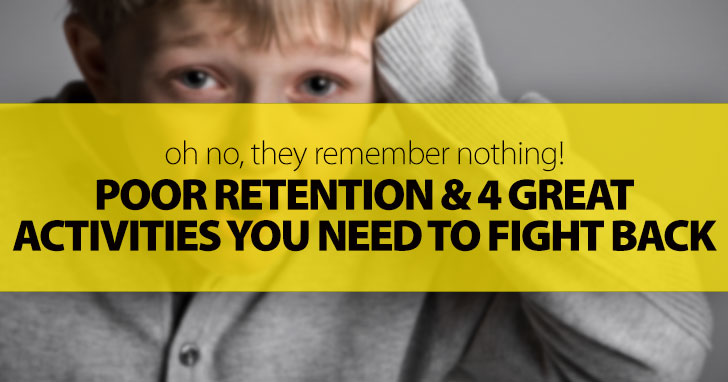How to Teach Question Structures


Imagine this situation: you spend more than enough time on a specific language goal making sure your students understand and practice everything as they should. You are certain your choice and use of techniques is perfect for your students and they truly seem to be grasping everything the way they should. Of course, you are boasting with pride and even think it is a good time to give yourself a well earned pat on the back. The class ends, and you say good-bye. The following class you consider it might be a good idea to get the ball rolling with a few questions about the points covered in the last lesson, and this is where the horror begins. They remember nothing! Question after question is met with surprised looks and wrong answers. The bitter realization is too much to bear and you start to wonder what went wrong. If this has happened to you, the first thing you should bear in mind is that you probably did nothing wrong. Students all over the world have problems retaining what they learn. Many teachers blame themselves and in reality most of the time it has to do with something our students are not doing. However, though this may be true, we are not simply going to put the blame on the students because in the end, it is our responsibility to explain how to improve retention and to provide a plan. And, lucky for you, that's exactly what I'm going to give you. So, are you ready for duty, soldier? If your answer is Yes sir! ,take a look at the following tips and activities.

Most of us provide exercises for our students to do at home. Good ol' homework can give your students some great opportunities to keep what they have learned fresh on their minds. What you should do is simply give some thought to what they are doing. What happens very often is that we assign exercises that are provided in their workbook and although most of those might work out well, others might not. Some workbook exercises may not be targeting real student needs or may not even be challenging enough.
Provide texts where students need to skim and identify structures or vocabulary they have learned. Seeing how they are used in texts can really help them understand how to use them. You can also mix it up and use a viewing activity instead of reading. In this case provide links where they can watch short videos and do the same thing.
After identifying structures and vocabulary in the previous exercise, they can start using them. Ask them to choose a handful of words and a structure and have them write a short text. It can be an email, a report, a story or whatever they want.

Always start your class with some sort of exercise to review what was practiced the previous lesson. I'm sure a lot of you already do this but what happens often is that we end up simply asking questions. Let's face it, not the best way to start a class. Make it fun and challenging, play games or have them interact.
Write a list of words and/or examples with the structure/s you have been practicing. Let's imagine they have gone through the past tense, with a bit of mystery, tell them “something happened to me last night”. They will feel curious, so encourage them to guess what happened using the vocabulary and structure/s.
Write vocabulary on pieces of paper and put them in a bag. Write the name of the structures they have been practicing on pieces of paper, as well. They need to choose one word about of the vocabulary bag and one paper with a structure. Then have them think of a question using them.
The secret to learning languages is exposure.
The more you hear it, read it, see it and use it in general, the faster you will learn and retain. Don't simply move on after something has been covered. Remember to always go back after a certain number of goals have been covered. Keep things fresh in their minds because as Lord Byron said “It is singular how soon we lose the impression of what ceases to be constantly before us.”